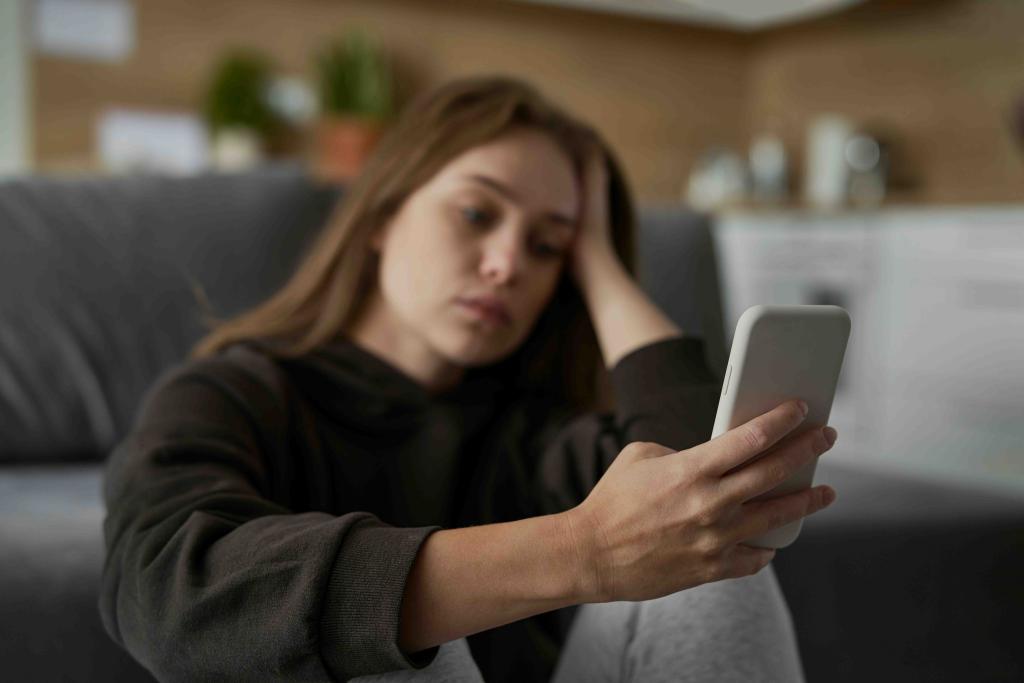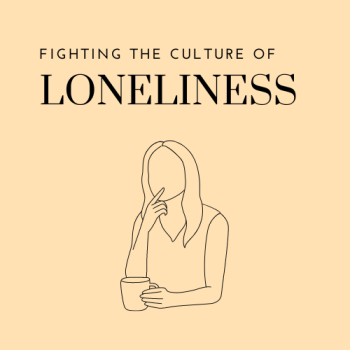
A Vital Verse
I come from a church tradition that generally discouraged drinking, and even forbade it amongst church leadership. Although I’m not personally on that doctrinal page (and even rebelled against it during my younger years) I’ve grown to deeply respect the desire for healthy boundaries. There is wisdom in being conscious of cultural stumbling blocks and staying away from them.
In many ways, that’s what Paul was talking about in his letter to the Ephesians when he wrote, “But among you there must not be even a hint of sexual immorality, or of any kind of impurity, or of greed, because these are improper for God’s holy people. Nor should there be obscenity, foolish talk or coarse joking, which are out of place…” (Ephesians 5: 3-4b, emphasis added). Just a few verses later, Paul writes that often quoted verse about drunkenness: “Do not get drunk on wine, which leads to debauchery. Instead, be filled with the Spirit,” (Ephesians 5: 18).
That contrast between being filled with wine versus being filled with the Spirit is crucial to understanding a lot of Christian teaching on purity.
Generally, Christians agree that this principle of “do not be drunk on wine” really applies to intoxication of any kind. By and large, Christians believe that we should stay sober in all aspects, keeping away from any excessive use of substances that would muddle our minds and lead to “debauchery.” I have yet to hear the mainstream doctrinal stance that hallucinogens should be a part of a healthy Christian lifestyle, despite the fact that Paul doesn’t call out these types of intoxicants directly.
Although Paul doesn’t directly address every drug or intoxicating habit, serious pastors and theologians acknowledge that Paul is teaching a general principle of Christian holiness, one echoed by Peter in his first letter. There, Peter constantly urges his audience to be “sober-minded” (1 Peter 1:13 / 4:7 / 5:8).
Arguing that those in the Church should avoid abuse of drugs and alcohol isn’t controversial, and neither is applying the same logic toward addiction to other activities that lead to behaviors that prevent us from being “filled with the Spirit” and lead to debauchery. Gambling, for example, is an activity that can be done apart from drugs/alcohol but is often treated similarly by the Church because of the acknowledgment that there are underlying addictive elements at work.
Though there is some debate, generally most people in the Church wouldn’t consider the occasional game of poker with friends to be an issue (similar to having the occasional drink). But when gambling becomes such a focus that it gets even remotely close to an addiction, it’s almost unanimously agreed that it’s gone beyond God’s intention. Excessive gambling can absolutely lead to a life of ungodliness, and it should be treated by believers with caution.
The point is, it’s safe to assume that anything that alters our thinking (and even the chemical composition of our brain), even for a short time, is not part of God’s will for us.
The problem is, that raises a very uncomfortable question about believers and their cell phones.
An Uncomfortable Question
In doing research for this column, it became clear to me that there is a lack of a unified definition of cell phone addiction. Some articles cite cell phone addiction in America at around 6% (nearly identical to the percentage of those with an alcohol use disorder). Other articles give numbers upwards of 45% of Americans being addicted to their cell phones, which is both radically high yet, somehow, feels about right.
In many ways, cell phone addiction (like many other addictions) is based upon what is sometimes referred to as the “feel-good” hormone, dopamine. Like most things regarding our biology, dopamine’s role in our lives is complicated and you can learn more about it from this article published by the Cleveland Clinic. For our purposes here, I’ll just say that God designed our bodies to use dopamine to encourage productivity and give us positive feelings. Yet, today, many of the activities we engage in daily are programmed to give us a “hit” of dopamine much easier and more often than I think was God’s intention.
Picking up your phone and seeing a notification? Dopamine hit.
A “like” or “repost” on social media? Dopamine hit.
Feel satisfaction in deleting a handful of emails? Another hit.
Play (essentially) any mobile game? Hit after hit after hit.
To be clear, I am not trying (nor am I qualified) to write my own work on cell phone addiction. I know very little outside of my own story and the bits of information I’ve read from experts. My goal is exclusively this: to challenge those of us who are under an apprenticeship with Jesus to ask ourselves tough questions.
In this case, the question is: does my cellphone hold more sway over me than the Holy Spirit?
A Bit of My Story
I have generally used much less screen time on my phone than most in my millennial generation. I have no social media or mobile games, so I would often just read the news or watch videos on YouTube.
But, a few months ago my wife and I renewed our dedication to having a weekly Sabbath, really wanting to lean into God’s gift for us to have a day of rest. With prompting from pastors and leaders who often talk on this subject, I decided I would give up my phone each Sabbath.
Just twenty-four hours each week without a phone… shouldn’t be hard.
I did some practical steps to make that happen, such as telling friends and loved ones that if they need me to call my wife’s phone, and that if I didn’t text them back it wasn’t because I was ignoring them.
So, Sabbath came and I shut my phone off.
And struggled.
It was shamefully hard not to have a device next to me that would fill the moments of time during the day. There was no reading the news or watching YouTube, no mindlessly cleaning out emails, no checking to see if I’d received a text. When my day got boring (which was rare with four children, granted) I just didn’t know what to do with myself.
I paced the house and tapped my fingers on a desk as if I were having withdrawals.
Now, I haven’t the slightest clue if you could say I was clinically “addicted” to my phone. I’m confident I used my phone significantly less than my generational average, but that honestly doesn’t matter to me at all.
Comparison isn’t the goal for me, and I pray it isn’t for you either. Being “not as bad” as someone else doesn’t make you someone walking in the will of God.

I can say with certainty that it was harder to go a day without my phone than a day without prayer, or a day without communion with God, or a day without worship, or a day without fellowship… you name it. Oh, I want to believe that isn’t true, but my biological reaction proved to me that I wanted my phone more than communion with God and His people.
So, I made changes. As an apprentice of Jesus, there is nothing in me that ones to settle for anything less than His full will for my life. Whatever He wants for me, I want for me.
In the next section, I’ll detail some of the changes I made so that you can examine them to see if they might make sense for you as well. Before I do though, I’d challenge you to commit to taking twenty-four hours away from your phone. And I mean, with your phone off.
For most of us, excuses start to pour into our minds at the thought of that. We have people who have to get ahold of us, and things we just have to be able to access. But we also know that probably isn’t really true. There’s a way to separate ourselves from our phones for a time, the problem is we both do and don’t want to.
It’s kind of like we’re drunk on these mobile devices, isn’t it?
Send this article to a friend now with a message like “Hey, could we talk about this?” You don’t have to do anything alone, and it’s the community God gives us that often becomes His tool for making lasting change in our lives.
Practical Steps (To Putting Dopamine In Its Place)
There will be some who choose to refrain from smartphones and social media entirely, just like some refrain from alcohol entirely. There is wisdom there, and if you feel convicted, please know I encourage you to go that route.
For others of us, we should (at the very least) look at our phone like we do alcohol: setting careful boundaries. Personally, I never have more than one drink. That was tough at first when I was young, but now it is normal to me and is actually my preference. I just desire to be wise more than the feeling of a drink.
Our phones should be treated that way, with very strict boundaries on them. If we find ourselves unable to stick to those boundaries, like someone who cannot have only one drink, then we should cut it out entirely. If what Jesus said is true, that “it is better for you to lose one part of your body than for your whole body to be thrown into hell” (Matthew 5:29b), then how much more should we be willing to trash our phone in order to follow Jesus more faithfully?
Since my realization that my phone held too much sway over me, I made some of the following changes:
- My phone is not my alarm clock
- There is no reason in all the world that our phones should be the first thing we see in the morning. I picked up an alarm clock for about $15 and now use that to wake up. It’s literally just an alarm clock… it does nothing else.
- My phone is on “Do Not Disturb” all the time
- I have set my phone up so that all calls can come through while on “Do Not Disturb,” but no longer do texts and notifications pull my attention away. I did have to let loved ones know that I am now slower to answer text messages, but it’s been worth it. No longer do I just look at my phone randomly to see if a notification came through, that habit has been broken (praise God!). Now I truly control when I look at my phone.
- If an app does not make me productive, it gets deleted
- Most apps make money through ads, which means the app has to bring me back over and over again in order to be profitable. Keeping apps designed to keep me on my phone essentially defeats the whole purpose of making changes to focus on the Lord. If deleting Instagram or Facebook or a mobile game makes your heart rate spike, it’s a good sign it needs to go.
- My phone “goes to bed” an hour before I do
- I got this terminology from John Mark Comer, a pastor out in Portland, OR. Essentially, my phone is either turned off or put away at least an hour before I go to bed, ensuring that the thoughts I end my day with are not focused on the news, social media, or anything like that. This has been a major help in both me sleeping better and feeling way less anxious.
- No phone in the bedroom
- There are a plethora of reasons for this one. For me, however, the number one driver is that I have four little boys I’m raising up and I want to model for them purity in all areas. Bringing an internet-accessing device into the privacy of a bedroom is foolishness for a young boy (and for most others), so I’m choosing to make this change in my life so that I can hold them to this standard without hypocrisy. Plus, it helps reinforce many of the other choices!
Final Thoughts
Historically, the Church has always taken our purity of living very seriously, which means (among many other things) we are not people of drunkenness of any kind. We should live lives that are so wholly committed to Jesus that the idea that something else holds our hearts, minds, or attention captive should be disgusting to us.
It’s likely that you, like me, have succumbed to the addictive, dopamine-riddled, nature of our cell phones. We don’t need to excuse it, deny it, or wallow in the guilt of it.
Instead, we repent and shift our thinking and actions.
Most of us would proclaim Christ is enough publicly, and we likely tell ourselves that He is enough in our own hearts and minds. But we don’t truly believe that Christ is enough unless it influences our actions at the deepest level.
So, let’s make some changes.
Send this to a friend or loved one and start a conversation that leads to life change for the glory of God.
For more content like this, check out the Living Room Disciple Podcast here, or check out our website.

















